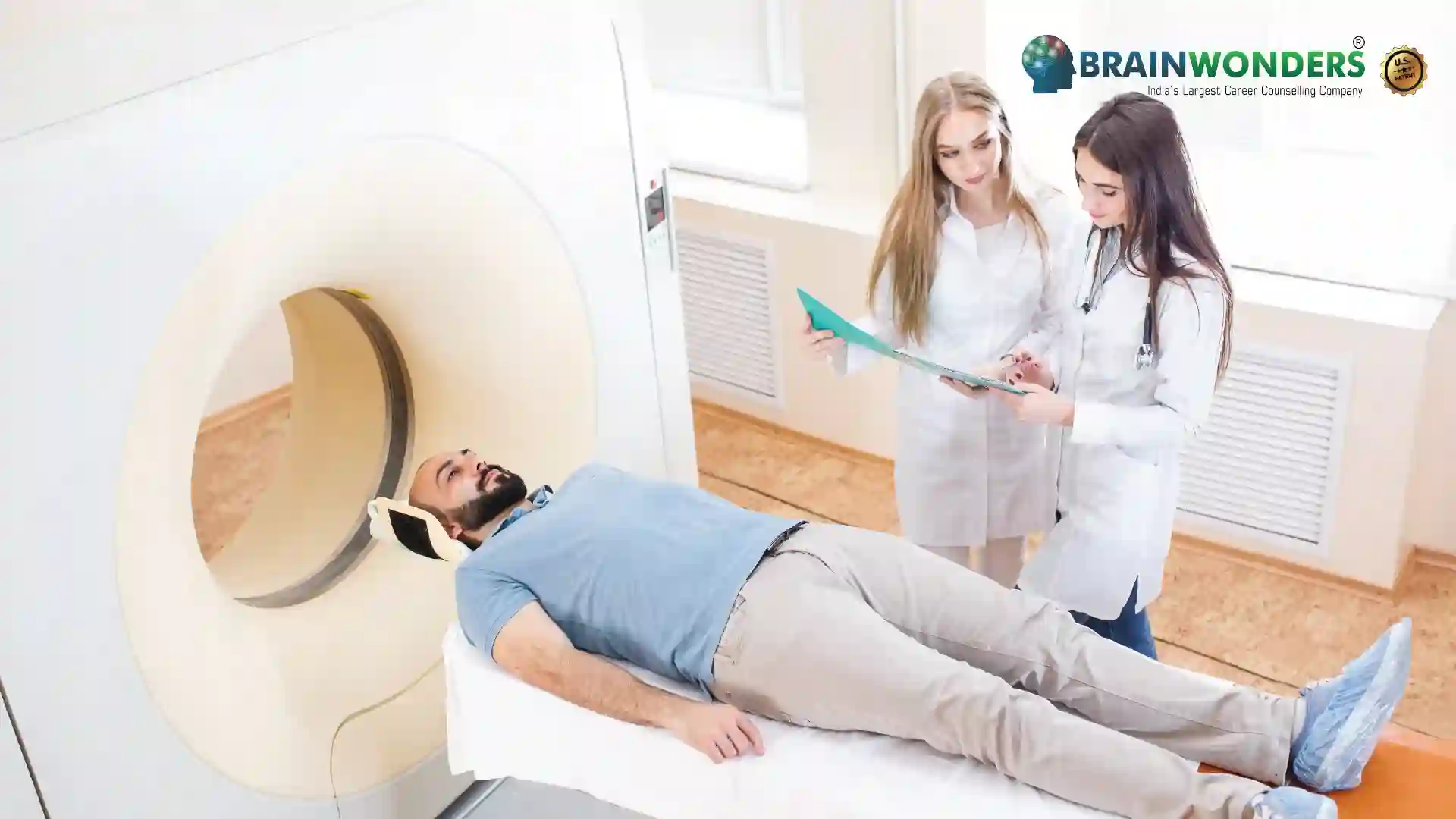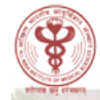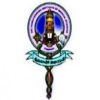How to become a Nuclear Medicine Technologist
Overview, Courses, Exam, Colleges, Pathways, Salary

Overview
Who is Nuclear Medicine Technologist ?
Nuclear medicine incorporates chemistry, physics, mathematics, health care, computer technology, and medicine to use radioactivity to diagnose and treat illness, as it provides information virtually about both the structure and function of organs. The nuclear medicine technologist is a highly specialised health care specialist who looks at how the body functions to aid in diagnosis and treatment of a variety of conditions and diseases. In the case of a nuclear disaster they can also serve as first responders.
Typical day at work
What does Nuclear Medicine Technologist do?
- Prepare and administer small dose of radiopharmaceuticals (also known as radioactive drugs or chemical compounds) or radiation intravenously to monitor the structure and functions of organs or tissues, using radioisotope equipment, under physician’s direction
- Detect and monitor radiopharmaceuticals in the bodies of patients, using a camera to produce photographic or computer images
- Use radioactive drugs to obtain images of heart and cardiac function process
- Calculate, monitor, and record radiation dosage or radiopharmaceuticals obtained, used, and disposed, using computer and following doctor’s prescription
- Record and process procedures results
- Produce a computer-generated image or video for doctors to view
- Plan radiopharmaceuticals stock, complainant to health standards to reduce radiation exposure to staff and patients
- Clarify test procedures and patient safety protocols and assist them during test procedures
- Conduct quality assurance checks of laboratory equipment or cameras
- Safeguard radioactive material disposal, handling, and storage based on safety procedures
- Collect patient’s medical history to guide diagnostic therapy procedures
- Maintain and calibrate laboratory and radioisotope equipment
- Measure glandular activity, blood volume, red cell survival, or radioactivity of patients, using scanners, Geiger counters, scintillometers, or other equipment
- Train, educate, and supervise students or subordinates
- Place radiation fields, radiation beams, and to provide effective treatment to the patient for the disease
- To assess the drug or hormone levels, apply radioactive substances to biological samples, such as blood, urine or faeces.
- Create nuclear medicine treatment procedures for research programmes
- Examine the patient to determine any side-reactions to the drugs
- Maintain detailed procedures records
- Conduct imaging procedures in patient with the help of radiation-detection instrumentation
- Give images, data analysis, and patient history to the doctor for diagnostic purposes
- Maintain and operate equipment like gamma cameras and computing systems to obtain images and process for analysis.
Abilities and Aptitude needed
What are the skills, abilities & aptitude needed to become Nuclear Medicine Technologist?
Nuclear medicine technologists should emphasise precision and be comfortable working with equipment that requires careful monitoring, in addition to knowing how to handle and set up complex laboratory technology. They need knowledge in anatomy and ability to understand electronic medical health records and have computer skills.
They need to be well-organised, have observation skills, and be detail oriented in order to conduct procedures with accuracy and precision. They must have excellent reasoning and judgement, as well as logical reasoning, critical thinking, and problem-solving skills. They are inquisitive, intelligent, introspective, interested, methodical, scientific, rational, analytical, and investigative people.
They must follow exact instructions so that the tests or procedures are performed correctly. Thus, they must learn to work well in a stressful environment. They need to be skilled with their hands and work closely, safely, and effectively with needles, chemicals, and other laboratory instruments. Thus, good hand-eye coordination, manual dexterity, and fine motor skills are necessary.
In the laboratory, they must also follow all conventional safety procedures and quality control standards, as well as understand and follow legal and health-care processes. They must be able to manage time and prioritize tasks effectively while maintaining the quality of work. While the patient is in surgery, they must work rapidly and methodically to provide results.
They should be able to effectively communicate, both verbally and in writing as well as have interpersonal skills. Lastly, they need physical stamina as they may work on their feet for long periods and at times, may need to lift or turn disabled patients to collect samples for testing.
Salary
Salary for Nuclear Medicine Technologist?
- Entry-Level Annual Salary: Entry-level Nuclear Medicine Technologists can expect an annual salary ranging from INR 2,00,000 to INR 4,00,000.
- Experienced Annual Salary: Experienced Nuclear Medicine Technologists with several years of practice can earn an annual salary ranging from INR 4,00,000 to INR 6,00,000 or more.
- Location Influence: The location of employment, especially in metropolitan areas, may offer higher compensation.
- Type of Healthcare Facility: Larger hospitals, specialized clinics, and cancer treatment centers might offer better salaries.
- Specializations and Skills: Technologists with specialized skills, such as PET-CT or SPECT-CT imaging, might receive higher compensation.
Pathways
How to become an Nuclear Medicine Technologist?
Entrance Exam
Entrance Exam for Nuclear Medicine Technologist ?
Courses
Which course I can pursue?
Best Colleges
Which are the best colleges to attend to become an Nuclear Medicine Technologist?
Industries
Which Industries are open for Nuclear Medicine Technologist?
1. Hospitals and Medical Centers:
- Hospitals with nuclear medicine departments employ technologists to perform diagnostic imaging scans, such as positron emission tomography (PET) and single-photon emission computed tomography (SPECT) scans.
2. Diagnostic Imaging Centers:
- Independent imaging centers focus on various imaging modalities, including nuclear medicine. Technologists play a crucial role in performing and interpreting nuclear imaging studies.
3. Cancer Treatment Centers:
- Nuclear Medicine Technologists in cancer treatment centers use imaging procedures to identify cancerous tissue and stage cancers and monitor treatment responses.
4. Academic and Research Institutions:
- Universities and research organizations may employ technologists for clinical trials, research studies, and teaching nuclear medicine techniques to medical students and residents.
5. Private Imaging Facilities:
- Private facilities specializing in medical imaging may offer services such as PET scans and SPECT scans, creating opportunities for technologists.
6. Cardiac Imaging Centers:
- Technologists in cardiac imaging centers perform procedures to assess heart function and blood flow using nuclear imaging techniques.
7. Government Health Departments:
- Government health departments may have nuclear medicine facilities for various diagnostic purposes, offering roles to Nuclear Medicine Technologists.
8. Pharmaceutical Companies:
- Companies manufacturing radiopharmaceuticals require Nuclear Medicine Technologists for quality control, production, and research.
9. Research Organizations:
- Technologists can work in research institutions that advance nuclear medicine technology, develop new imaging agents, and improve imaging techniques.
10. Medical Device Manufacturers: - Companies manufacturing nuclear medicine imaging equipment might hire technologists for product development, testing, and customer support.
11. Teaching Hospitals and Medical Colleges: - Technologists can work in educational institutions, teaching nuclear medicine procedures to medical students and residents.
12. Healthcare Consulting and Quality Assurance: - Technologists with expertise in radiation safety and quality assurance can work as consultants to ensure adherence to safety standards.
13. Radiation Safety and Regulatory Agencies: - Radiation safety and regulatory compliance agencies may hire Nuclear Medicine Technologists to oversee safe practices.
14. Telemedicine and Remote Imaging: - Technologists can be involved in remote imaging interpretation, offering expertise through telemedicine platforms.
internship
Are there internships available for Nuclear Medicine Technologist?
1. Hospital-Based Internships:
- Many hospitals with nuclear medicine departments offer internships for aspiring nuclear medicine technologists.
- Interns gain practical experience in operating gamma cameras, preparing radiopharmaceuticals, and performing imaging procedures under the guidance of experienced technologists.
2. Diagnostic Imaging Centers:
- Diagnostic centers with nuclear medicine facilities might provide internships for technologists to learn about various imaging techniques, patient preparation, and equipment operation.
3. Cancer Treatment Centers:
- Some cancer treatment centers offer internships where technologists learn about the use of nuclear medicine in cancer diagnosis and treatment planning.
4. Academic Institutions:
- Some universities or medical colleges might offer internships or clinical rotations as part of their nuclear medicine technology programs.
5. Research Organizations:
- Research institutions involved in medical imaging and nuclear medicine research might offer internships for technologists interested in research projects.
6. Government Health Facilities:
- Government hospitals and health facilities with nuclear medicine departments may provide internships for technologists to gain exposure to nuclear imaging procedures.
7. Private Imaging Centers:
- Private imaging centers that offer nuclear medicine services may offer internships to train technologists in various imaging modalities.
8. Pharmaceutical Companies:
- Companies that manufacture radiopharmaceuticals might provide internships to technologists to learn about the production and quality control of these substances.
9. Teaching Hospitals and Medical Colleges:
- Institutions with medical colleges and teaching hospitals may offer internships as part of their educational programs.
10. Equipment Manufacturers: - Companies that manufacture nuclear medicine imaging equipment might offer internships to provide hands-on experience with the latest technology.
11. Continuing Education Centers: - Some organizations provide continuing education courses for nuclear medicine technologists and might offer internships as part of their training programs.
12. Research and Clinical Trials: - Technologists interested in participating in clinical trials involving nuclear medicine might find opportunities to intern with research organizations.
When searching for nuclear medicine technologist internships in India, consider reaching out to hospitals, diagnostic centers, research institutions, universities, and healthcare organizations with nuclear medicine departments. Inquire about the duration, learning objectives, application process, and any stipends or allowances offered during the internship. Additionally, ensure that the internship program aligns with your career goals and interests within the field of nuclear medicine.
Career outlook
What does the future look like for Nuclear Medicine Technologist?
The future for Nuclear Medicine Technologists is promising, shaped by advancing medical technologies and a growing emphasis on personalized healthcare. These professionals will play a vital role in diagnosing and treating medical conditions using radioactive substances and imaging techniques. As precision medicine gains prominence, Nuclear Medicine Technologists will contribute to tailored treatments and targeted therapies, optimizing patient outcomes. Integrating artificial intelligence and data analytics will enhance image analysis and interpretation, increasing diagnostic accuracy. Collaborating closely with radiologists, physicians, and other specialists, Nuclear Medicine Technologists will continue to be essential healthcare team members. The demand for nuclear medicine procedures, particularly in oncology and cardiology, is expected to rise, creating ample job opportunities. Furthermore, as healthcare systems transition toward preventive care and early disease detection, these technologists will contribute significantly to disease prevention and management. Continuous learning and adaptability will be essential as the field evolves, ensuring that Nuclear Medicine Technologists remain at the forefront of cutting-edge medical practices.



.webp)


